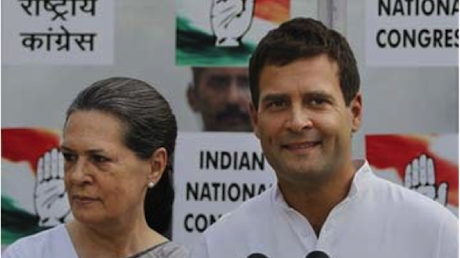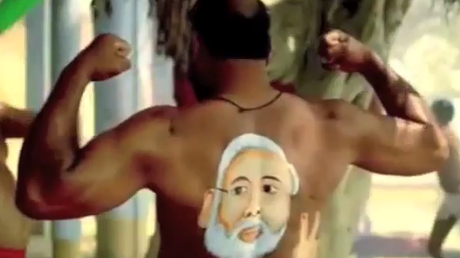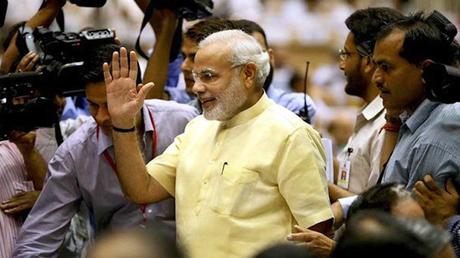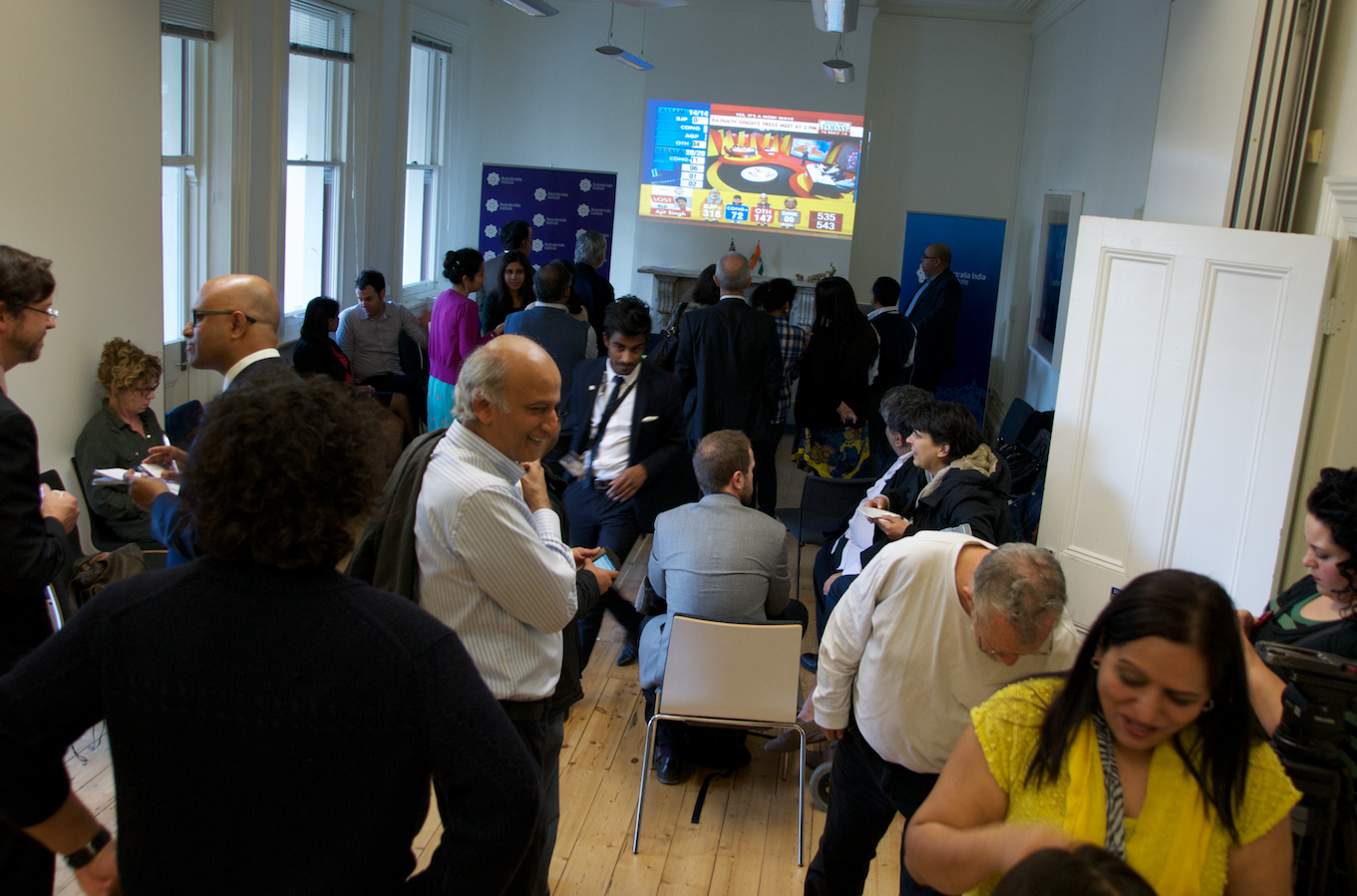It was early afternoon in Melbourne when the results of the greatest democratic show on earth began to filter through from India. A decisive win for the Hindu nationalist Bharatiya Janata Party (BJP) had been widely predicted. But within an hour, as the scale of the landslide rapidly became apparent, a rowdy and excited coterie of Indian academics and analysts gathered at the Australia India Institute to monitor the live feed and debate what it would mean to the world's third-biggest economy.

AII Director, Professor Amitabh Mattoo, told the assembly that Narendra Modi's victory was unprecedented, given both the size of the majority delivered to the BJP – though whether it would turn out to be an absolute majority was still in the balance – and the huge voter turnout. India saw a record 66 percent turnout this general election, wiith 537 million people casting ballots over the past five weeks.
While Hindu Nationalist Modi is a polarising figure, Mattoo said it was to be hoped that Modi's India would be "economically driven and socially benign".
Mattoo was part of a discussion panel with Indian journalist Mosiqi Acharya (Election Watch Contributing Editor) who until recently was covering the Modi campaign in India, and Nicholas Reece, Public Policy Fellow at the University of Melbourne (and coordinator of Election Watch).
Modi had a clear vision for India - reviving economic growth, providing jobs for youth and tackling corruption, Acharya said. His economic agenda - much hyped as "Modinomics" - pledges heavy investment in power, road and rail projects to revive economic growth, and tax and labor market reforms aimed at creating the 10 million jobs required every year for the nation's young workforce.
It's a vision that excited stock markets. The TV screens beaming in with the seats tally also kept a running account of Indian stocks as they soared to a new record high with the realisation that Modi would be the next Indian Prime Minister. The Sensex index rose 6 per cent to 25375.63 before falling back to 24415.76.
While the markets signalled approval of Modi's economic credentials and industrial ambitions, ramping up the buzz at the AII forum, he remains a controversial and often divisive figure and this "shadow" was acknowedged at several points in the panel discussion. He is blamed by many Indian Muslims for failing to stop bloody religious riots in 2002 in Gujarat, the powerhouse state he has led for the past 13 years.
As the AII/Election gathering broke up, many Indians and India-philes lingered to watch footage showing an emotional Narendra Modi meeting his elderly mother and touching her feet, a traditional Hindu gesture of blessing.





